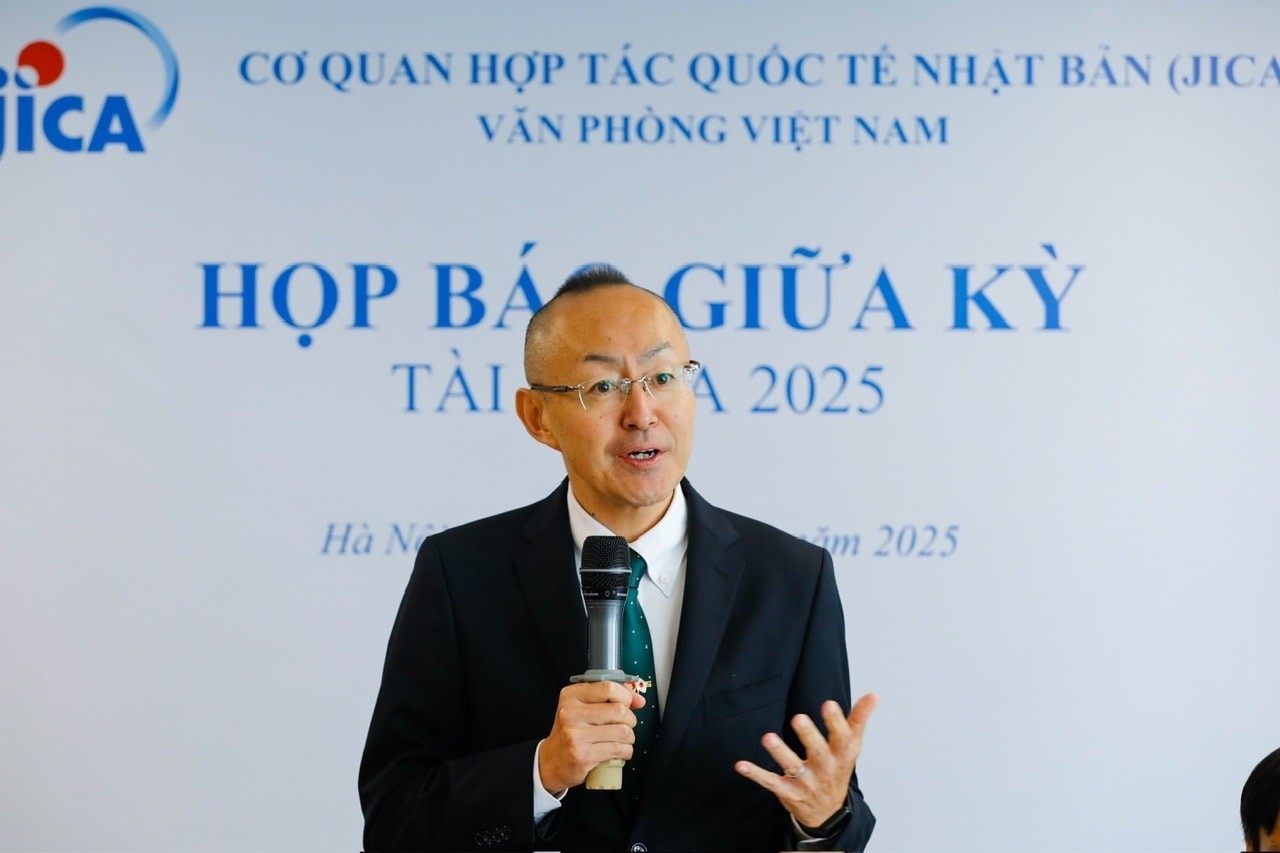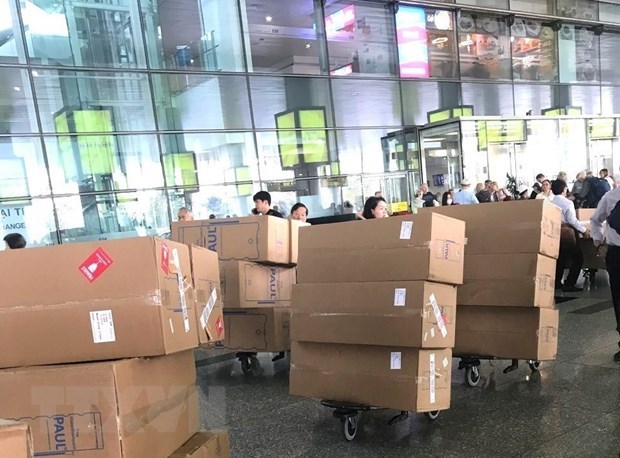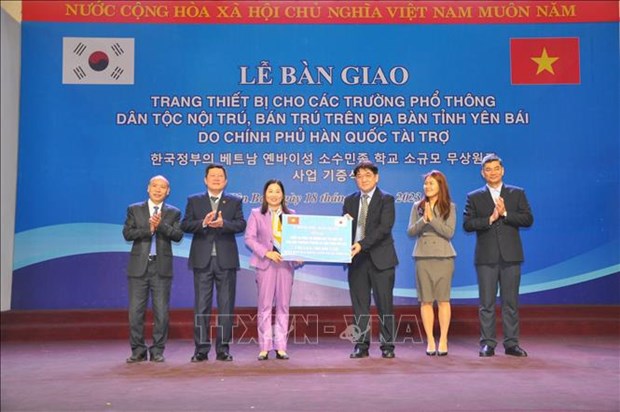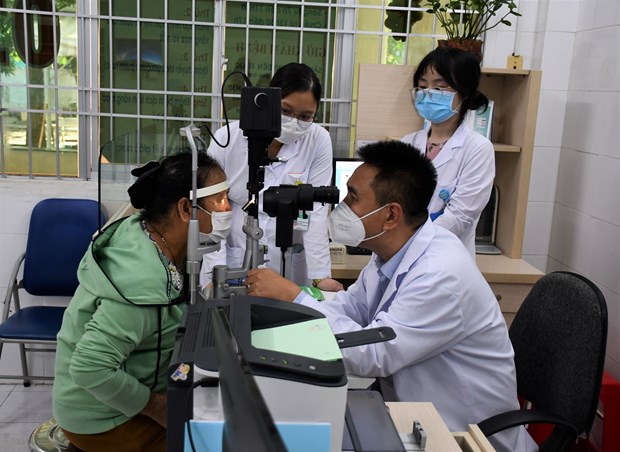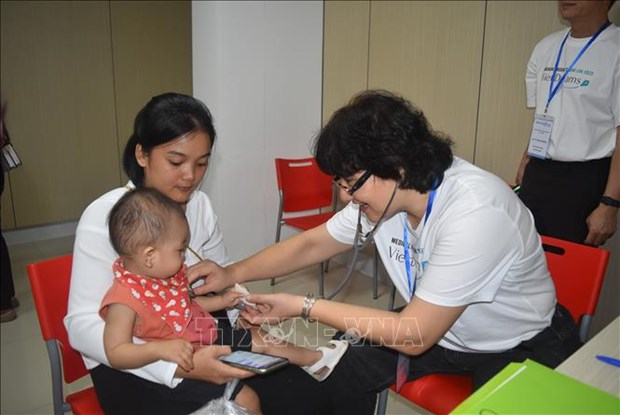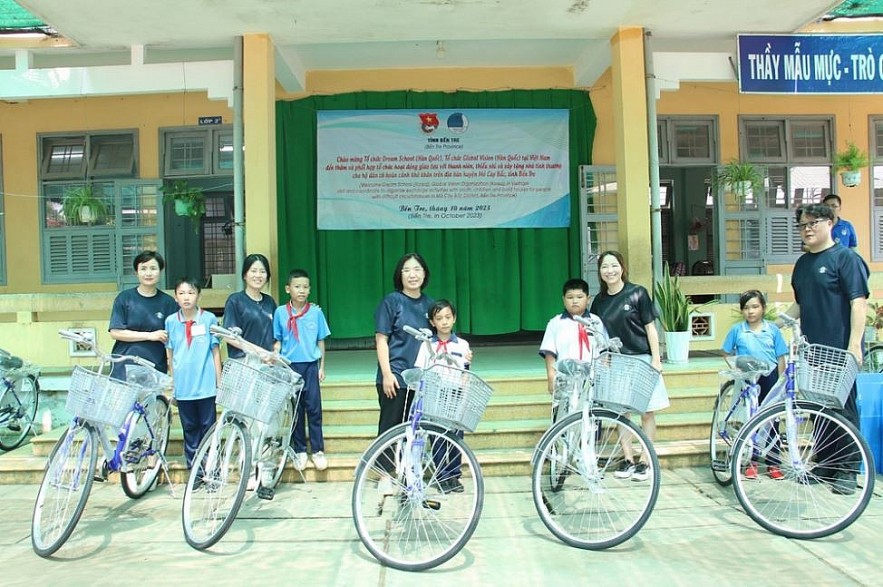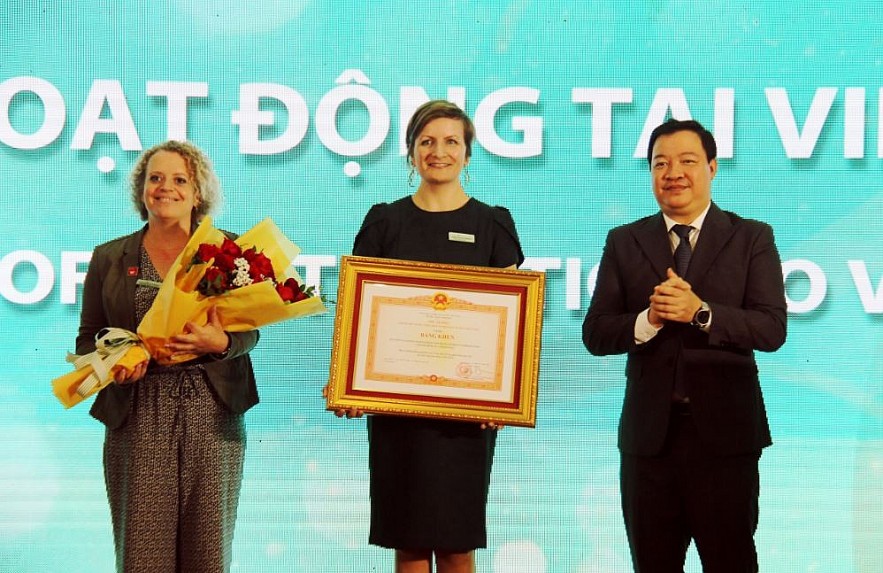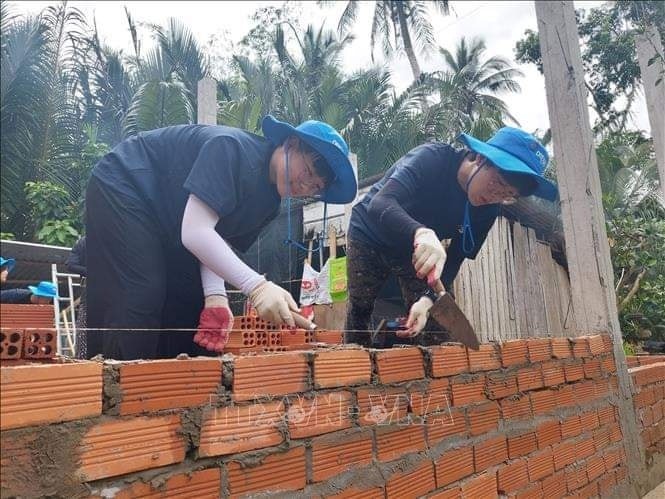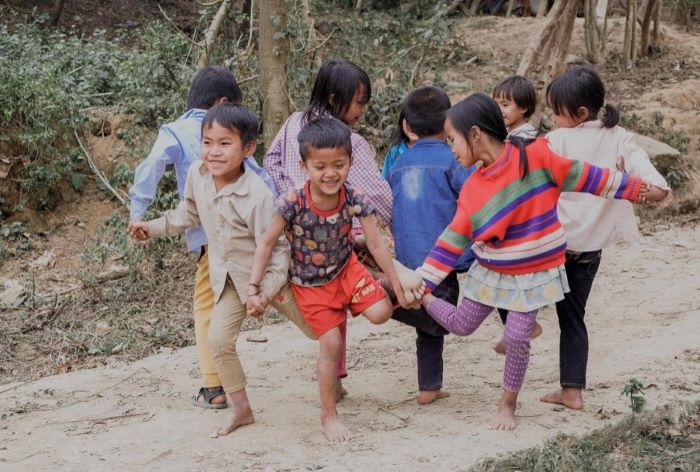A prosthetic and orthotic fitting session was recently organized for 21 persons with disabilities (PwDs) in Hiep Duc district in the central province of Quang Nam.
This activity was conducted by the Medical Committee of Netherlands-Vietnam (MCNV) in collaboration with Da Nang Orthopedic and Rehabilitation Hospital as part of the United States Agency for International Development (USAID)-funded Inclusion 1 Project.
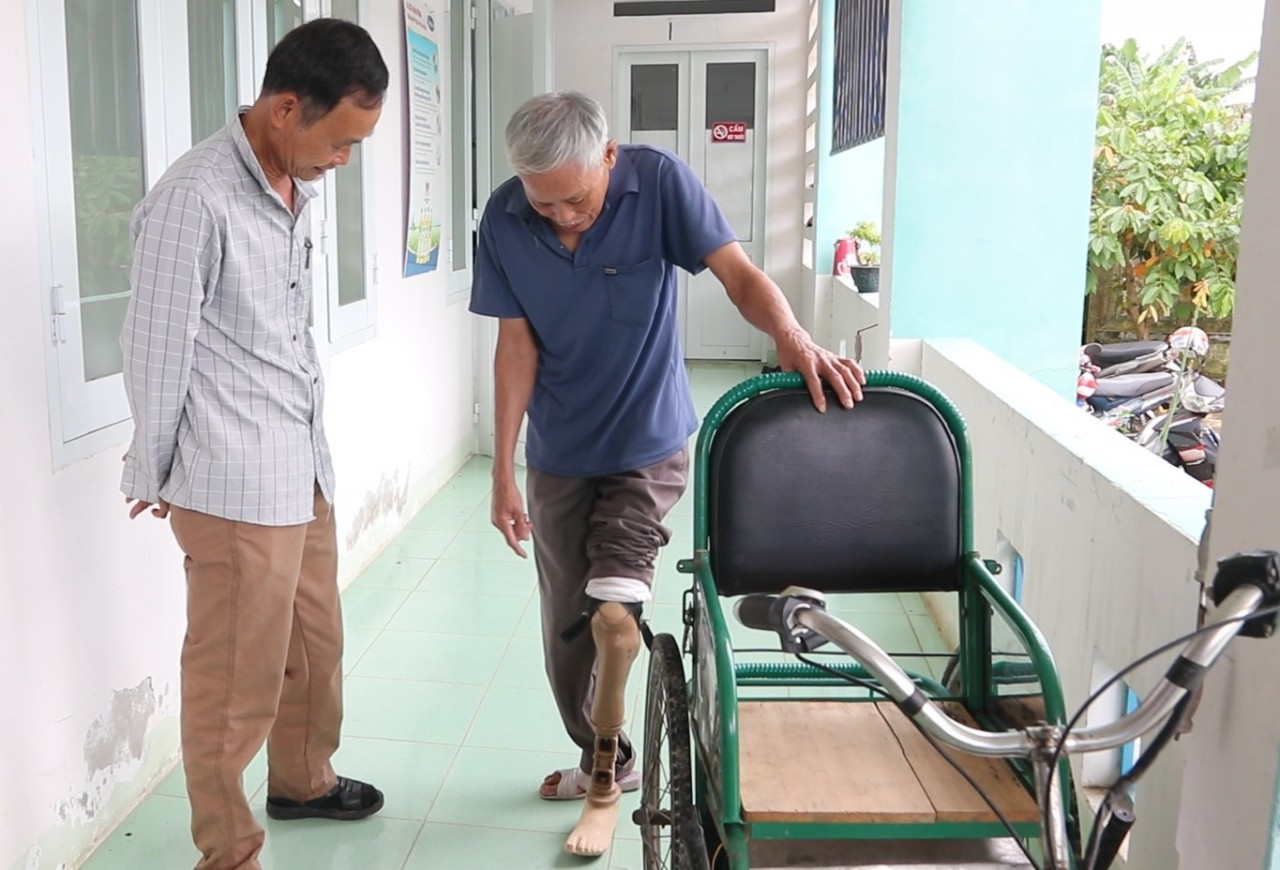 |
| A man tries on his new leg. Photo: MCNV |
PwDs in rural areas and poor households have little access to assistive devices, including alternative medical devices such as prosthetics. Moreover, the high cost of artificial limbs partly comes from the personalized nature of artificial limbs to suit the body and needs of PwDs, which cannot be mass-produced as other medical supplies.
Prosthetic and orthotic fitting is a step in the process of providing assistive devices to PwDs in three beneficiary provinces of the Inclusion 1 Project, which are Quang Tri (Huong Hoa district, Quang Tri town), Thua Thien-Hue (Phu Loc and Nam Dong district), and Quang Nam (Hiep Duc and Nong Son district)
The assistive devices, including prostheses, orthoses, crutches, canes/walking frames, and wheelchairs, among others, were provided based on the recommendations of physical medicine rehabilitation doctors, orthotic therapists, and occupational therapists after conducting an assessment of PwD’s needs for rehabilitation.
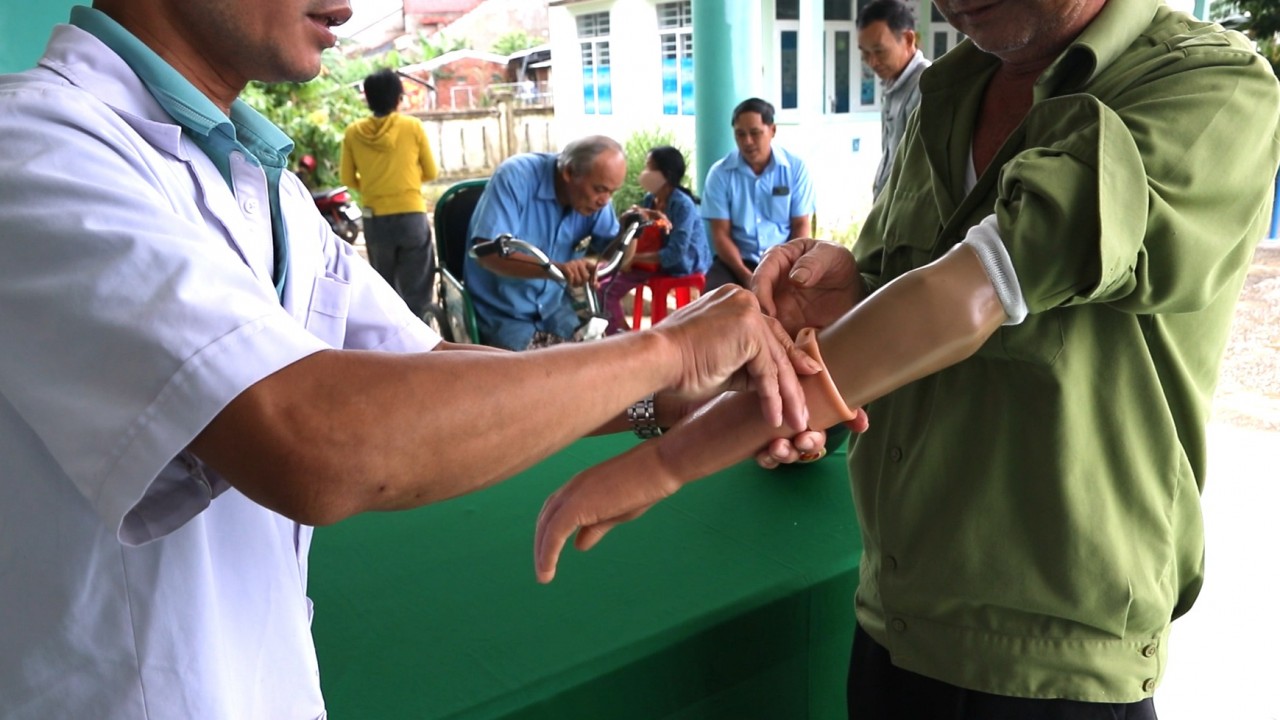 |
| The use of prostheses or orthoses can reduce the need for formal health care, support services, long-term care and caregivers. Photo: MCNV |
Prosthetic and orthotic fitting aimed to evaluate the suitability of the devices with PWDs’ needs, ensuring comfort and functionalities. In case the devices did not fit properly, they would be adjusted on the spot or returned to the hospital's orthotics workshop for adjustment or re-production before being officially handed over to PwDs.
Founded on November 18, 1968, by a team of dedicated Dutch doctors, MCNV’s initial mission was to deliver aid from the Netherlands to Vietnam to support the country’s resistant war. Most of the sponsorship was made through medical supplies, hospital building, and the prevention of tuberculosis, and malaria.
In later years, MCNV has diversified its fields of operation, joining hands with Vietnam in the cause of development, with various projects in livelihood improvement, gender equality, rehabilitation, and response to climate change.
The Inclusion 1 project is funded by the USAID via the CCIHP (Center for Creative Initiatives in Health and Population), owned by NACCET (National Action Centre for Toxic Chemicals and Environmental Treatment). MCNV is one of the project implementing partners.
Long Pham / Source: Vietnamtimes

